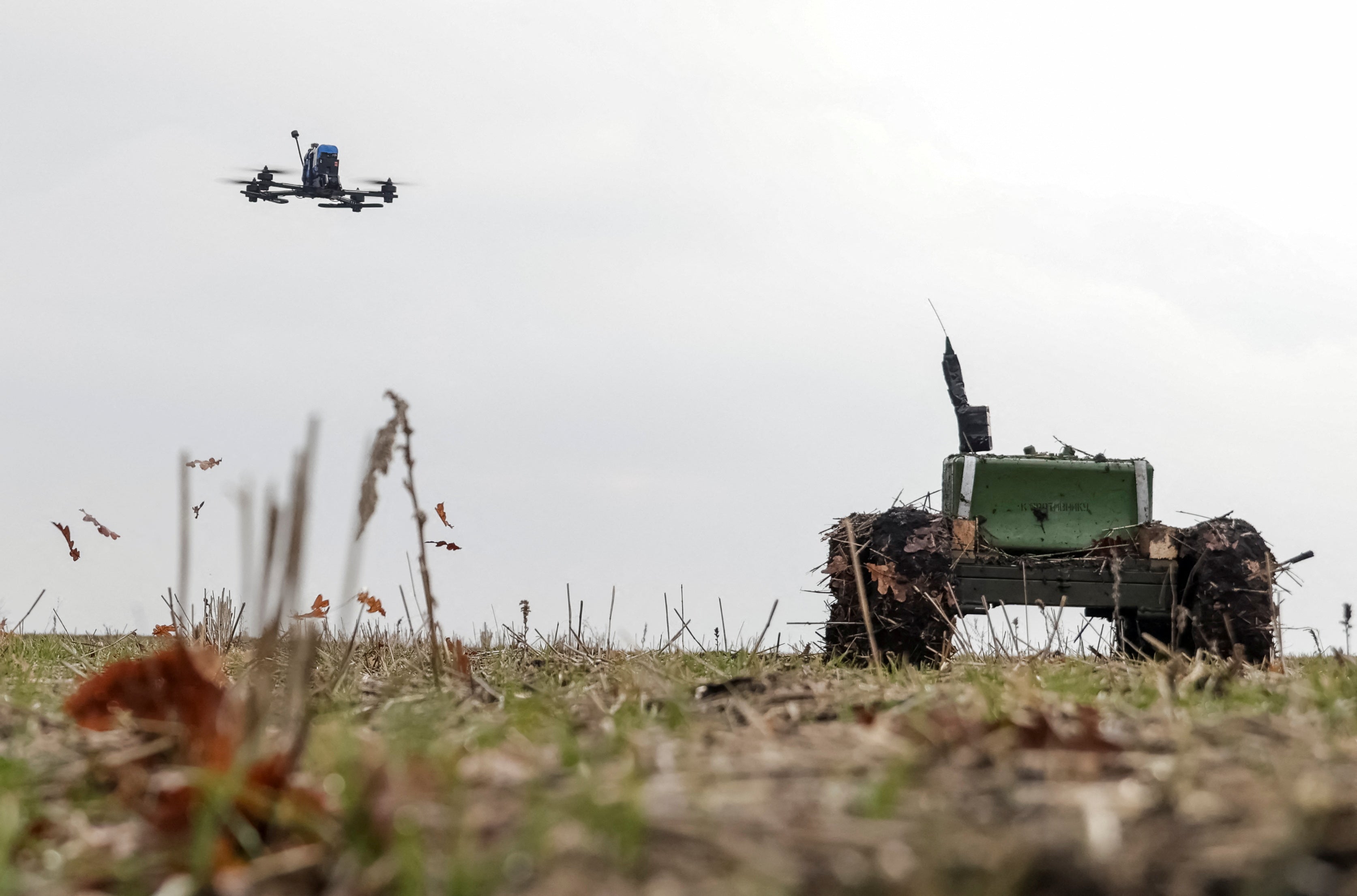
Iraq wants Iran-backed factions to lay down weapons, foreign minister says
PHOTO CAPTION: Illustrative photo — a Fighter of the Iraqi Kataib Hezbollah militia group stands the site of a U.S. airstrike, in Hilla, Iraq December 26, 2023. REUTERS/Alaa al-Marjani
By Timour Azhari
LONDON (Reuters) - Iraq is trying to convince powerful armed factions in the country that have fought U.S. forces and fired rockets and drones at Israel to lay down their weapons or join official security forces, Foreign Minister Fuad Hussein said.
The push comes with a backdrop of seismic shifts in the Middle East that have seen Iran's armed allies in Gaza and Lebanon heavily degraded and Syria's government overthrown by rebels.
The incoming U.S. Trump administration promises to pile more pressure on Tehran, which has long backed a number of political parties and an array of armed factions in Iraq.
Some Baghdad officials are concerned the status quo there may be upended next, but Hussein played this down in an interview with Reuters during an official visit to London.
"We don't think that Iraq is the next," Hussein said.
The government was in talks to rein in the groups while continuing to walk the tightrope between its ties to both Washington and Tehran, he said.
"Two or three years ago it was impossible to discuss this topic in our society," he said.
But now, having armed groups functioning outside the state was not acceptable.
"Many political leaders, many political parties started to raise a discussion, and I hope that we can convince the leaders of these groups to lay down their arms, and then to be part of the armed forces under the responsibility of the government," Hussein said.
Iraq's balancing act has been tested by Iran-backed Iraqi armed groups' attacks on Israel and on U.S. troops in the country they say are in solidarity with Palestinians during the Israel-Hamas war.
A promised Gaza ceasefire has the government breathing a sight of relief, though uncertainty prevails over how the country may fare after Donald Trump becomes U.S. president.
During the last Trump presidency, relations grew tense as he ordered the assassination of Iranian General Qassem Soleimani in Baghdad in 2020, leading to an Iranian ballistic missile attack on an Iraqi base housing U.S. forces.
"We hope that we can continue this good relationship with Washington," Hussein said. "It is too early now to talk about which policy President Trump is going to follow for Iraq or Iran."
With Iraq trying to chart a diplomatic third-way, Hussein said Baghdad was ready to help diffuse tensions between Washington and Tehran if asked and noted previous mediation between Saudi Arabia and Iran that paved the way for their normalization of relations in 2023.
SYRIA
Armed revolution in neighbouring Syria has been viewed with concern.
The Islamist rebels now in power in Damascus were among the Sunni Muslim militants that entered Shia-majority Iraq from Syria after the 2003 U.S.-led invasion, fuelling years of sectarian war.
Islamic State crossed the same way a decade later and undertook bloody massacres before being beaten back by a U.S.-led international military coalition and Iraqi security forces and Iran-aligned factions.
Iraq will only be reassured about Syria when it sees an inclusive political process, Hussein said, adding Baghdad would supply the country with grain and oil once it could be assured it would go to all Syrians.
Baghdad was in talks with Syria's foreign minister over a visit to Iraq, he said.
"We are worried about the ISIS, so we are in contact with the Syrian side to talk about these things, but at the end to have a stable Syria means to have the representative of all components in the political process."
Baghdad and Washington last year agreed to end the U.S-led coalition's work by September 2026 and transition to bilateral military ties, but Hussein said that the developments in Syria would have to be watched.
"In the first place, we are thinking about security of Iraq and stability in Iraq. If there will be a threat to our country, of course it will be a different story," he said.
"But until this moment we don't see a threat."
(Reporting by Timour Azhari in London; Editing by Angus MacSwan)










